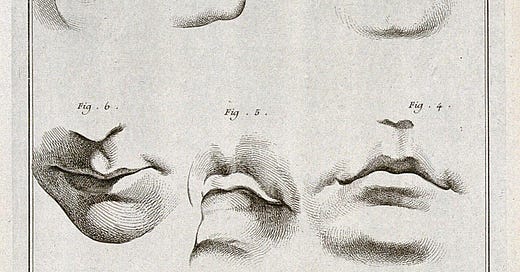Tell Your Doctor a Good Story
Stories are the heart of medicine. This week at SUNY Upstate Medical School, I’ll be discussing Narrative Ethics with future doctors—because every patient’s story deserves to be heard with care.
Why Stories Matter in Health Care
When did you last visit your doctor? Picture the scene. There you are, seated in the waiting room, clipboard in hand, dutifully checking boxes on a stack of forms. Perhaps you recall the dim hum of the air conditioning, the faint antiseptic smell in the air. You might even have squinted to decipher the fine print on a well-worn photocopy asking about your medical history. And yet, if you’ve been fortunate enough to meet a truly good doctor, you know that the story of your health is not, and cannot be, contained in those boxes.
The best doctors—the ones we trust, remember, and even recommend to others—go beyond yes/no data collection. They ask open-ended questions. They listen as we recount our symptoms and our struggles, nodding in encouragement, occasionally murmuring, “Tell me more.” In doing so, they open a door to something far greater than information. They uncover stories.
When we speak of an ache or fatigue, we are rarely talking about the pain alone. Our stories don’t stop at what hurts. They inevitably point to the tangled threads of our lives—the stresses of work, the burden of grief, the joy of family, or the weariness of responsibilities that seem too heavy to carry. A doctor attentive to these stories learns not only what is wrong but also what matters, and it is this knowledge that transforms the encounter from mere treatment to true care.
Dr. Rita Charon, a pioneer of Narrative Medicine, beautifully captures this idea: “The care of the sick unfolds in stories.” Our stories offer doctors something no lab test or imaging scan can reveal—the meaning of our illness within the larger context of our lives. A story turns a diagnosis into a conversation, and a patient into a person.
When stories are taken seriously, something remarkable occurs. A patient feels seen and heard; a doctor finds not just a case to solve but a person to serve. It is in this meeting, in the shared recognition of humanity, that healing truly begins.
Why We Must Take Stories Seriously
Good health care, like good writing, requires us to pay attention. For doctors, this means listening with the kind of reverence that a reader brings to a beloved book—curious, attentive, open to surprises. For patients, it means seeing the value of our stories and speaking them truthfully, trusting that they matter.
It would be easy to dismiss stories as merely decorative, extraneous noise interfering in an otherwise scientific endeavor. But this would be a grave mistake. Stories are not the embellishment of medicine; they are its essence. They remind us that illness is not merely a biological event but a deeply personal one, and that healing, when it comes, must address the whole person.
So, the next time you visit your doctor, notice how your story is received. Are you interrupted, hurried along, or met with indifference? Or are you truly heard?
And if you are the one in the white coat, consider this: how might you listen differently if you understood storytelling as the cornerstone of good medicine?
Narrative Ethics
Dealing with stories, as any good doctor or writer knows, requires ethical care. Stories, like people, are fragile things. They can be mishandled, misunderstood, even betrayed. And here we turn to the work of James Phelan, for whenever "Narrative Ethics" is mentioned, his voluminous work on the subject inevitably comes to mind. Phelan’s framework is a lantern in the dark, illuminating the ethical dimensions of stories and their tellers.
Narrative ethics, Phelan teaches us, revolves around four essential positions:
The Ethics of the Told, which examines the characters within the story and their moral struggles. In medicine, this is the story of the patient: their suffering, decisions, and the consequences they face. A doctor listening to a patient’s tale must ask not only, What is happening here? but also, What is right? What is just?
The Ethics of the Telling, which considers how the story is told. For the physician, this is the tone of voice, the choice of words, the look in the eye. These small acts of telling shape whether a patient feels respected or dismissed, empowered or diminished.
The Ethics of Writing or Producing, which involves the responsibility of the storyteller—or in this case, the doctor—toward the narrative itself. When jotting down a patient’s history, the doctor becomes its author. Will it be a dry recitation of facts, or will it honor the patient’s humanity? Will it be precise yet compassionate?
The Ethics of Reading or Reception, which demands that we consider how the audience—whether a doctor, a family member, or even the patient themselves—receives and interprets the story. Listening is no passive act. To truly hear a patient’s story is to bear a moral obligation to respond with care and understanding.
To navigate these ethical positions, Phelan reminds us that stories are never merely words on a page or symptoms in a chart. They are moral acts, inviting us to think, judge, and act not just for ourselves but for the greater good. In the realm of medicine, this means treating the story of a patient not as an aside to the science, but as the heart of it.
Writing Exercises for Reflection
The Ethics of the Told
Recall a time when you were faced with a difficult ethical decision, whether in a clinical setting or elsewhere. Write a brief narrative of the event, focusing on the characters involved, the choices they faced, and the outcomes. Reflect: What did this experience teach you about ethics in action?The Ethics of the Telling
Think of a moment when you had to explain something significant to someone unfamiliar with the subject—perhaps a medical procedure or a diagnosis. Recreate the conversation, paying attention to your tone, word choice, and body language. Then revise it, imagining how you could have told the story with greater clarity and compassion.The Ethics of Reception
Write from the perspective of a patient reading their doctor’s notes about them. How do the words on the page make you feel? Are you understood, respected, diminished, or uplifted? Revise the notes to reflect a more humane and empathetic understanding of the patient’s story.
A Final Word
As we reflect on stories and their power, let us not forget that every story we tell, hear, or write carries with it an ethical charge. To handle stories well—to honor the humanity within them—is both an art and a responsibility. James Phelan’s insights on narrative ethics remind us of this truth, just as Dr. Rita Charon’s work shows us its living, breathing application in the field of medicine.
The next time you hear a story—whether in the doctor’s office, the classroom, or at a bedside—pause. Consider not just its facts, but its meaning. Ask yourself: Am I listening well? Am I telling this with care? Am I honoring this story and its teller? These questions, humbly asked and earnestly answered, may lead us closer to what all great stories seek to reveal: the goodness and dignity of the human soul.





